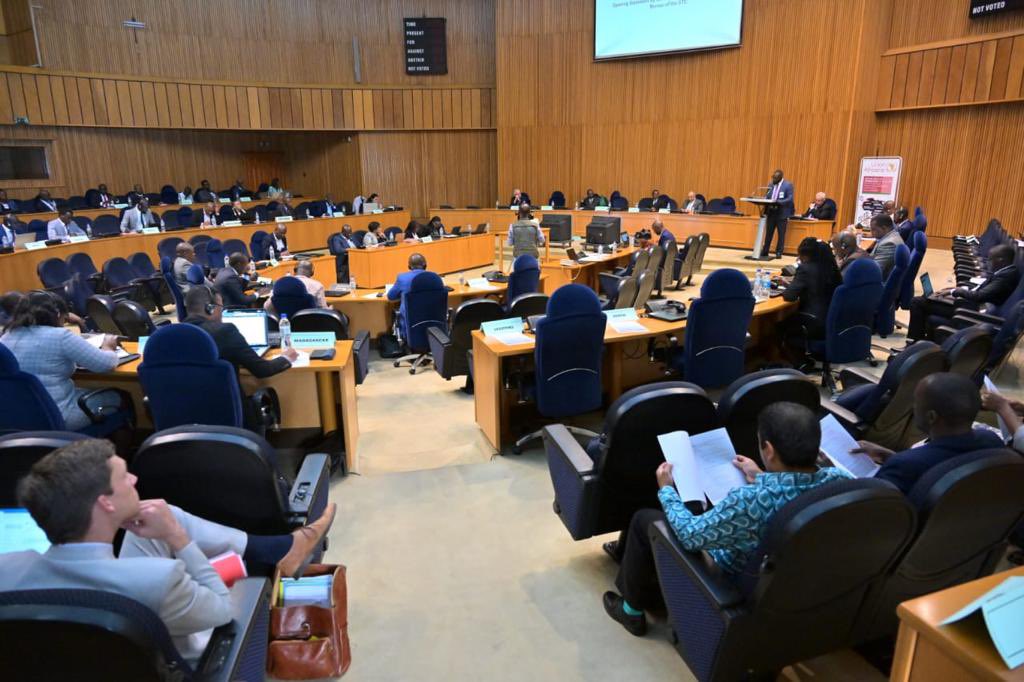Date

The African Union Commission (AUC) has committed to support TJNA’s fight against illicit financial flows (IFFs) in the continent by championing the roll-out of the flagship anti-IFFs policy tracker tool.
During the Second AU Sub-Committee on Tax and Illicit Financial Flows of the Specialized Technical Committee meeting on Finance, Monetary Affairs, Economic Planning, and Integration, the African Union Commission (AUC) committed to championing the introduction of the policy tracker tool to relevant policy organs within the African Union, with this endorsement scheduled to occur after thorough discussions and validation meetings.
With a shared goal of combating illicit financial flows (IFFs) and driving Africa's development agenda, the member states during the meeting lauded TJNA’s effort in developing the anti-IFFs policy tracker tool. They noted the importance of developing a process to monitor and assess the efforts by member states to curb tax-related IFFs and welcomed the approach to building a context- specific tracker.
Organized by the African Union Commission's Department of Economic Development, Tourism, Trade, Industry, Mining (ETTIM), and supported by the African Tax Administration Forum (ATAF), the meeting brought together a diverse range of experts, senior officials, representatives from ministries of finance, tax administrations, specialized government agencies, central banks of AU member states, regional economic communities (RECs), African tax experts, civil society organizations (CSOs), non-governmental organizations (NGOs), and academia.
During the meeting, TJNA presented the proposed anti-IFFs policy tracker tool designed to monitor the implementation of national-level policies to combat IFFs. It was underscored that evaluating country-level progress in curbing IFFs is essential for identifying areas requiring attention and further action. The policy tracker, drawing on recommendations from various reports, offering a valuable resource for African countries to monitor and enhance their efforts in combating IFFs effectively.
A subsequent panel discussion, moderated by Ms. Chenai Mukumba, Acting Executive Director at TJNA, further emphasized the significance of the policy tracker. Dr. Patrick Ndzana Olomo from the African Union Commission (AUC) and Mr. Thulani Shongwe from the African Tax Administration Forum (ATAF) highlighted important policy areas covered by the tracker, such as Automatic Exchange of Information and Transfer Pricing. They underscored the tracker's role in providing country-level, policy-disaggregated data to address IFFs across Africa for evidence-based decision-making. Additionally, the panel emphasized the tool's potential to help countries identify their specific needs and areas requiring support, facilitating the acquisition of targeted technical assistance.
Based on the discussions, the following recommendations were put forward:
- Member States should enhance collaboration with organizations such as TJNA, AUC, and ATAF to address the issue of IFFs by sharing knowledge, best practices, and technical expertise to improve policy implementation and monitoring efforts.
- Developing the anti-IFFs policy tracker should consider individual African countries' needs and challenges and accommodate different contexts, policy priorities, and levels of implementation.
- The tracker should undergo a rigorous validation process that involves input from various stakeholders to ensure the tracker captures multiple perspectives and experiences, making it more effective and reliable.
- Efforts should be made to strengthen the capacity of countries in Africa to effectively implement policies aimed at curbing IFFs. Technical support and training programs should be provided to enhance the knowledge and skills of policymakers, tax administrators, and other relevant stakeholders.
- Illicit financial flows often involve cross-border activities, making international cooperation crucial. Member States should collaborate with regional and international partners to exchange information, harmonize policies, and collectively address the challenges posed by IFFs.
- Regular monitoring and evaluation of the tracker's effectiveness should be conducted to assess its impact on policy implementation and the reduction of IFFs. Feedback mechanisms should be established to continuously improve the tool based on emerging needs and changing dynamics.
By implementing these recommendations, African countries can enhance their efforts to combat illicit financial flows, promote financial transparency, and ensure effective policies that drive sustainable development and economic growth.
To ensure the Policy Tracker Tool on Illicit Financial Flows (IFFs) is fit for purpose, TJNA will organize validation meetings in collaboration with the African Union Commission (AUC). These meetings will enable countries to review and provide input, guaranteeing the tool aligns with the specific needs of Member States and builds upon existing efforts in combating IFFs.
For more details about our participation, please contact fkairu@taxjusticeafrica.net